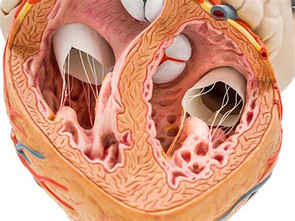Vitamin K. You may think of it as something to avoid if you have been prescribed the blood thinner coumadin. Or, you may think of vitamin K2 as a supplement to take with your vitamin D3. Both are true, but that may be as far as your familiarity goes.
Vitamin K1 is a vitamin that influences blood clotting, as does the pharmaceutical drug coumadin (warfarin), so in order to avoid over "thinning," doctors routinely advise their patients on Coumadin to avoid eating healthy vitamin K1-rich foods, such as leafy green vegetables.
Rather than avoid these healthy foods and vitamin K1, you might consider switching from coumadin to a proteolytic enzymes, such as serrapeptase, nattokinase, or both.
“Numerous health experts have been concerned for years that coumadin was not ef ective in preventing vascular deaths but also has problems with occasional serious internal bleeding episodes. German researchers found out in 2005 that long term use of coumadin produced increased calcium in the aortic valve and coronary arteries when compared to patients not taking coumadin. Dr. Gary Gordon states that “every patient on coumadin is increasing the calcium content of all vascular tissues. The calcium content of arteries is now proven to be more dangerous than diabetes, elevated cholesterol or hypertension, we must now try to educate patients.” Patients taking coumadin can be easily moved to safer anticoagulant therapy.” (3)
Vitamin K2 is another form of vitamin K, and it is used along with Vitamin D3 to help keep calcium from collecting in the arteries, where it becomes the major constituent of arterial plaque causing atherosclerosis, otherwise known as "hardening of the arteries." At the same time, Vitamin D3 and K2 help maintain bone density by activating three important proteins involved both in removing harmful calcium from the arteries and regulating calcium's role in bone health; osteocalcin, Gas 6, and matrix Gla protein (MGP). Vitamin K2 also helps prevent endothelial dysfunction, which also contributes to cardiovascular health.
In a 10-year study, adults with highest intakes of vitamin K2 had a 57% lower risk of death from coronary heart disease.(1)
There are other forms of Vitamin K that are less well known, but making sure we are getting adequate daily intake of Vitamin K is a simple but effective way to boost both heart and bone health.
For more information, see my newsletter from November 4 and my accompanying YouTube Webinar.
To add more Vitamin K to your daily supplement regimen, consider adding 1 capsule of Life Extension's Super K, a balanced combination of Vitamin K1 and two forms of Vitamin K2, to your daily health regimen.
Go to health!
1. Geleijnse JM, Vermeer C, Grobbee DE, et al. Dietary intake of menaquinone is associated with a reduced risk of coronary heart disease: the Rotterdam Study. J Nutr.2004Nov;134(11):3100-5.
2. Knapen MH, Drummen NE, Smit E, et al. Three-year low-dose menaquinone-7 supplementation helps decrease bone loss in healthy postmenopausal women. Osteoporos Int.2013Sep;24(9):2499-507.
3. Dr. James Howenstine -- Vitamin K2 Controls Removal of Calcium From Arteries... (newswithviews.com)
Medical Disclaimer: The content provided on this website is for informational purposes only and is not professional medical advice, diagnosis, treatment or care, nor is it intended to be a substitute therefor. Always seek the advice of a physician or other qualified health provider properly licensed to practice medicine or general health care in your jurisdiction concerning any questions you may have regarding any Content obtained from this Portal and any medical condition you believe may be relevant to you or to someone else. Never disregard professional medical advice or delay in seeking it because of something you have read on this website. Always consult with your physician or other qualified health care provider before embarking on a new treatment or fitness program. Content obtained from the Portal is not exhaustive and does not cover all diseases, ailments, physical conditions or their treatment.








